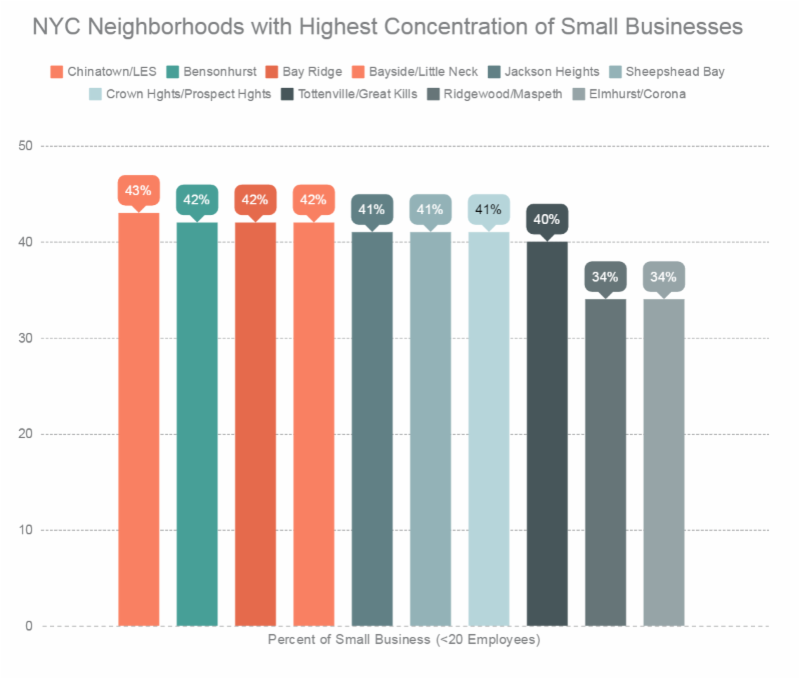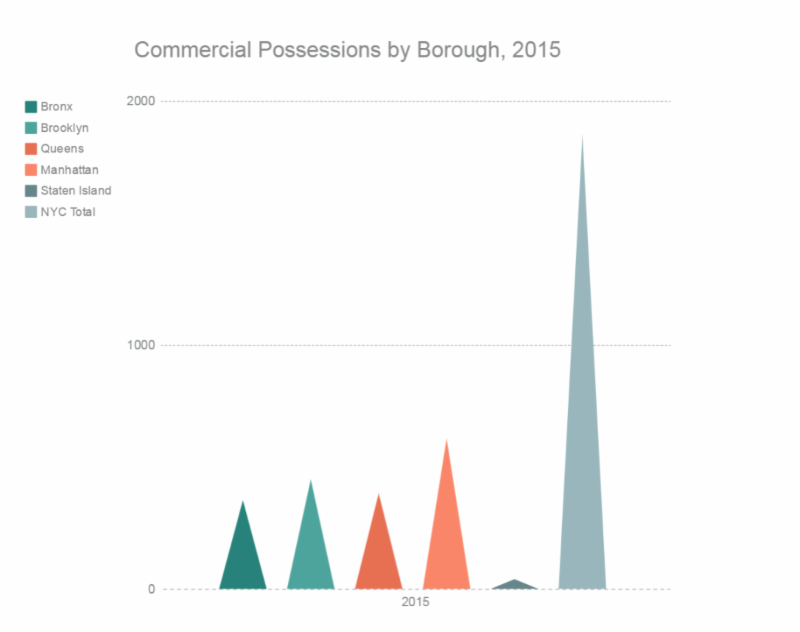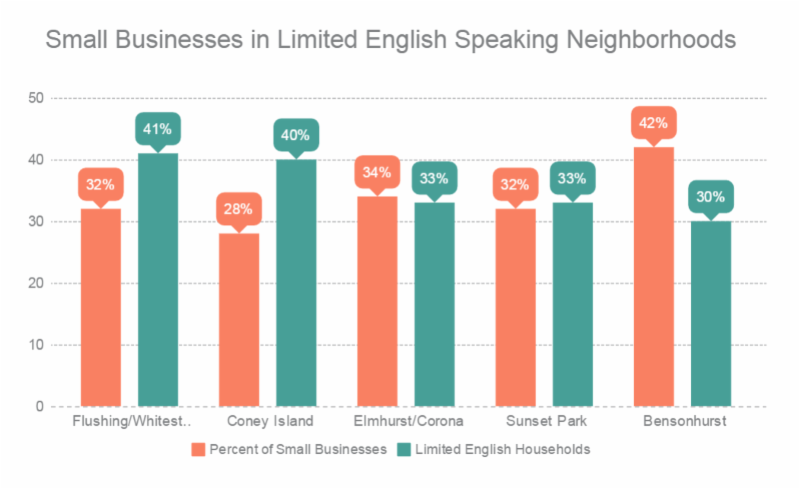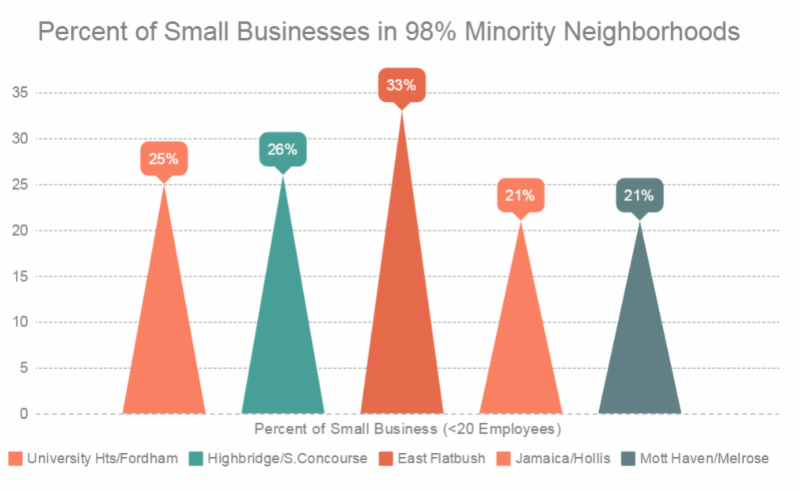Council to Protect Small Businesses
June 21, 2016
The City Council took an important first step today to protect New York City's small businesses and passed Intro 851 to curtail harassment of commercial tenants. This bill, sponsored by Council Member Robert Cornegy, chair of Council's Committee on Small Business, creates for the first time a definition of commercial tenant harassment and provides business owners with the ability to litigate against unscrupulous landlords.
Council Takes First Step to Protect Small Businesses – More Protections Needed
The City Council took an important first step today to protect New York City’s small businesses and passed Intro 851 to curtail harassment of commercial tenants. This bill, sponsored by Council Member Robert Cornegy, chair of Council’s Committee on Small Business, creates for the first time a definition of commercial tenant harassment and provides business owners with the ability to litigate against unscrupulous landlords.
ANHD applauds the passage of this legislation. We also understand that this is a small step in the fight for small business anti-displacement protections. Though Intro-851 is a crucial first step in establishing protections for businesses, this new law does not immediately resolve all of the problems faced by small businesses, as gentrification, speculation, and a challenging real estate market have exacerbated the threats to the survival of vulnerable small businesses.
ANHD, in partnership with a coalition of community organizations working to support and protect our NYC small businesses, believes this legislation should and must be strengthened in the future. Small businesses need a broader definition of harassment, a commercial tenant maintenance code, and government enforcement to stop the most unscrupulous landlords from continually taking advantage of commercial tenants. 

New York’s small businesses are facing a crisis, with the combined threats of gentrification, speculation, and rising rents creating a climate in which maintaining a stable small business is increasingly difficult. While small business owners struggle to pay exorbitant rents and cover their operating costs, they sometimes face the added threat of harassment from landlords who seek to push them out in order to make room for new tenants who can pay more for commercial space. Similar to residential tenant harassment, commercial tenant harassment often uses the same tactics to displace businesses. Landlords cut off water and electricity without notice, do unnecessary repairs during operating hours, and intimidate tenants with the threat of calling police or immigration authorities. However, while residential tenants have some legal protections that are enforceable through city and state law, small businesses do not have any enforceable tenants rights. Ultimately, these businesses are forced out of their communities and neighborhoods. In 2015, a total of 1,862 businesses in New York City were served with commercial possessions proceedings, a process where tenants are required to vacate the property and a lock is placed on the space, preventing them from accessing their businesses.  Businesses without a lease, especially those owned by immigrants and low-income residents are especially vulnerable. The neighborhoods with the highest concentration of small businesses also tend to be home to the highest number of immigrants and people of color. On average, 22% of households in the top five neighborhoods with the highest concentration of small businesses are limited English speaking households. Additionally, small businesses comprise an average of 33% of all businesses in the top five neighborhoods with the highest concentration of limited English speaking households. Small businesses make up an average of 25% of businesses in the five neighborhoods with the highest percentage of non-white residents.
Businesses without a lease, especially those owned by immigrants and low-income residents are especially vulnerable. The neighborhoods with the highest concentration of small businesses also tend to be home to the highest number of immigrants and people of color. On average, 22% of households in the top five neighborhoods with the highest concentration of small businesses are limited English speaking households. Additionally, small businesses comprise an average of 33% of all businesses in the top five neighborhoods with the highest concentration of limited English speaking households. Small businesses make up an average of 25% of businesses in the five neighborhoods with the highest percentage of non-white residents.
 Businesses without a lease, especially those owned by immigrants and low-income residents are especially vulnerable. The neighborhoods with the highest concentration of small businesses also tend to be home to the highest number of immigrants and people of color. On average, 22% of households in the top five neighborhoods with the highest concentration of small businesses are limited English speaking households. Additionally, small businesses comprise an average of 33% of all businesses in the top five neighborhoods with the highest concentration of limited English speaking households. Small businesses make up an average of 25% of businesses in the five neighborhoods with the highest percentage of non-white residents.
Businesses without a lease, especially those owned by immigrants and low-income residents are especially vulnerable. The neighborhoods with the highest concentration of small businesses also tend to be home to the highest number of immigrants and people of color. On average, 22% of households in the top five neighborhoods with the highest concentration of small businesses are limited English speaking households. Additionally, small businesses comprise an average of 33% of all businesses in the top five neighborhoods with the highest concentration of limited English speaking households. Small businesses make up an average of 25% of businesses in the five neighborhoods with the highest percentage of non-white residents.
 As local engines of economic activity, small businesses provide goods, services, and employment opportunities for residents while maintaining the cultural identity of communities. Small businesses provide vital goods and services to the residents of communities across the city. They provide employment opportunities and keep wealth circulating within neighborhoods. Small businesses are cultural institutions within their communities, and the backbone of New York City’s culture and economy. The threat of small businesses displacement is the threat of cultural displacement.
As local engines of economic activity, small businesses provide goods, services, and employment opportunities for residents while maintaining the cultural identity of communities. Small businesses provide vital goods and services to the residents of communities across the city. They provide employment opportunities and keep wealth circulating within neighborhoods. Small businesses are cultural institutions within their communities, and the backbone of New York City’s culture and economy. The threat of small businesses displacement is the threat of cultural displacement.We applaud Council Member Cornegy and the City Council for passing this important legislation. We look forward to working with them to create meaningful, more robust, enforceable small business protections in the future.